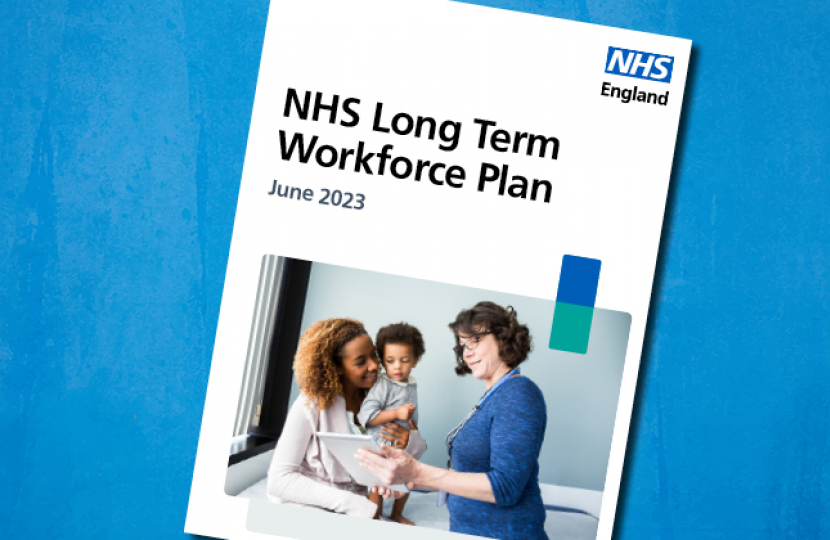
I was very pleased to see the Government produce its NHS Long Term Workforce Plan last week.
Earlier this year, I ran my Health Services Survey, which nearly 3,000 people took part in. It found that 77% of people who responded to the survey had had difficulty accessing a GP appointment within the last year, while 44% had struggled to get a dentist appointment – significantly lower than for GPs but still too high. Only 1 in 10 people said they had not had difficulty accessing health services.
The core issue for us is that we have had many houses built without the infrastructure to support them. But there are some overarching national issues that the Government’s Workforce Plan is designed to fix. The first priority within the Plan is to train more staff.
The Government is going to double the number of medical school places training places by 2031, from 7,500 to 15,000 a year, with a larger share of the places going to the areas of the country with the greatest shortages.
I know from my work with young people that medicine is one of the most popular careers for high-achieving young people from disadvantaged backgrounds, yet it is currently the most socially exclusive profession in the country, with only 6% of doctors from a working-class background. You’re a remarkable 24 times more likely to become a doctor if a parent is one, so I’m hoping the expansion of medical school places will help the profession become more representative too.
The number of dental training places will also increase significantly – by 40% - and measures will be looked at to try and ensure dentists remain in the NHS after they have completed their training, rather than going straight into private practice as 2/3 currently do.
There will be a doubling of adult nurse training places, an increase in degree apprenticeships to help people into roles in the NHS and an expansion of new roles such as nursing associates and physician associates to help free up the time of others in clinical roles.
Retaining people is almost as important as training them in the first place and to that end there are going to be changes to pensions as well as more professional development and occupational health services for staff, who will also benefit from the Government’s large investment in childcare that will give 30 hours free childcare a week from 9 months until they start school.
There will also be greater use of artificial intelligence and a shortening of the time it takes to get from the classroom to the clinic.
These measures will make it a lot easier for us to get the health services we need locally.
